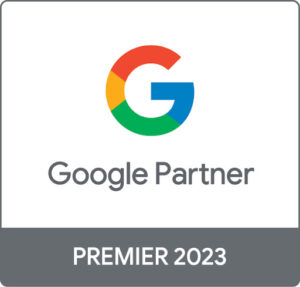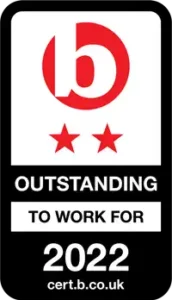How do you know if your website’s SEO needs fixing?
Whether you are managing your website’s SEO yourself, in-house at the company you work for, working with a freelancer or outsourcing to an agency it’s important to be able to identify if it isn’t working. Whatever your situation you need to be able to identify the surefire signs for when your SEO needs fixing.
The secret to good SEO is there’s no secret at all. You’ll get to the top by following the best practice guidelines set by Google and focusing your SEO efforts on logical reasons why they should rank your site at the top.
Before you read on, ask yourself the following questions:
- What are your goals?
- What are your expectations with SEO?
- What are you currently achieving?
- How are you measuring your results?
1. Your traffic from organic search is steadily decreasing
Go to Google Analytics and do a 6-month comparison. Check the Acquisition of your traffic from organic search and group it to weeks/months. If the amount of traffic from organic search is on the decline then you may have a problem.
Here are some of the most common reasons for an ongoing loss of organic traffic:
- Your site was recently hit with a penalty from Google.
- Your competitors are ramping up their search marketing efforts and overtaking your site.
- Your keyword positions are decreasing naturally.
- Your site has too many indexing errors making it difficult for Google to crawl your site.
- A change in the seasonality or search trend of your industry.
- An algorithm update from Google resulted in a loss of rankings for your site.
- Your website has a security issue (malware or spam) causing Google to drop rankings.
- Your website isn’t targeting the right customers and, therefore, isn’t engaging users.
2. You experience a significant loss in organic traffic overnight
If this happens, you’ve got a lot to worry about and your SEO strategy clearly needs a serious re-think.
I’ve worked with many brands that have experienced huge drops in traffic from Google and the number one suspect is usually dodgy tactics catching up with them.
Stop anything Black Hat or unnatural right now. It just isn’t worth getting caught out and the consequences are not worth risking. Eliminate underhanded tactics like buying links, hiding content in code, stuffing your site with keywords, link farming with PBNs (private blog networks), doorway pages, cloaking, spinning content, comment spamming, etc. from your SEO strategy now.
3. Your keyword rankings are gradually dropping
A drop in keyword rankings usually correlates with a loss of organic traffic, and vice-versa. If you’re tracking your keywords make sure you keep an eye on your primary keyword positions. Daily fluctuations in rankings are common but any major position drops is a good indication that your SEO strategy needs work.
4. Your website isn’t ranking for the ‘right’ keywords
Whether you’re working with an agency or executing your SEO strategy yourself you should have a comprehensive grasp of the keywords you should be targeting. There’s plenty of great keyword tracking tools out there so it’s easy to keep track of what your site shows up for.
But if your site doesn’t rank on the first page of Google for localised keywords that relate to your business then something’s seriously wrong.
5. Your website isn’t converting visitors into customers
Realistically, how of your visitors from search engines convert into customers? Be honest. Different industries have different standards for conversion rates but you should be aiming to convert at least 6 – 8% of your search engine traffic into customers.
Search traffic is different because visitors should intend to buy from you if you’re targeting the right keywords. If you aren’t targeting the right audience through your SEO strategy then your visitors are less likely to convert into customers!
6. Is your website’s content is thin and useless?
In recent years, SEO has put gained huge emphasis into rewarding websites with brilliant content that helps and informs visitors. Search marketing cannot exist without content and content is nowhere near as effective without SEO; so they truly are a match made in heaven.
Review your website’s content now. Does it help and inform your audience? Thin content is on Googles hit list. If your website is keyword-stuffed with useless, ineffective content then you’re going to miss out on engaging your customers and risk losing out on authority with Google.
7. Your website has poor behavioural metrics
Check your website’s behavioural metrics on Google Analytics. Low average time on site, less than 1 page per session, visits from unnatural locations, high bounce rates and lots of spam traffic are all indications that your SEO strategy isn’t working for you.
Although not an official ranking factor with Google, reviewing your behavioural metrics will help you identify whether or not your SEO strategy needs fixing.
8. You have poor quality backlinks and lots of them!
Any SEO knows that you should earn your backlinks rather than build your backlinks in 2016. There are plenty of creative, honest ways to earn quality, relevant links to your site but we’re not here to talk about that today.
Use Webmaster Tools (or any other quality backlink tool) to get a list of all the sites linking to yours. What do they look like? Are they from relevant, quality sites? Or are they spammy and irrelevant? If it’s the latter then it’s time to change how you earn those juicy links!
9. You’re not considering other digital marketing channels as part of your marketing mix
SEO can not exist on its own. Quite simply, it’s not enough to drive digital growth alone. Make sure you incorporate other aspects of digital marketing; creating valuable content, delivering it to your audience via social media and e-mail marketing, reaching out and developing a relationship with influential people within your marketplace, etc.
10. You’re not tracking your efforts
Without knowing where you started, how can you measure how far you’ve come? Measuring growth in SEO is key to knowing not only where you’re going next but how you’re going to get there. If you’re not measuring your site’s growth on Google Analytics, tracking your targeted keywords or even evaluating how effecting your content marketing efforts are then it’s time to fix your SEO!
Would you like to know if your SEO strategy needs fixing? Call us and we’ll help your brand get to the top of Google the honest way.










